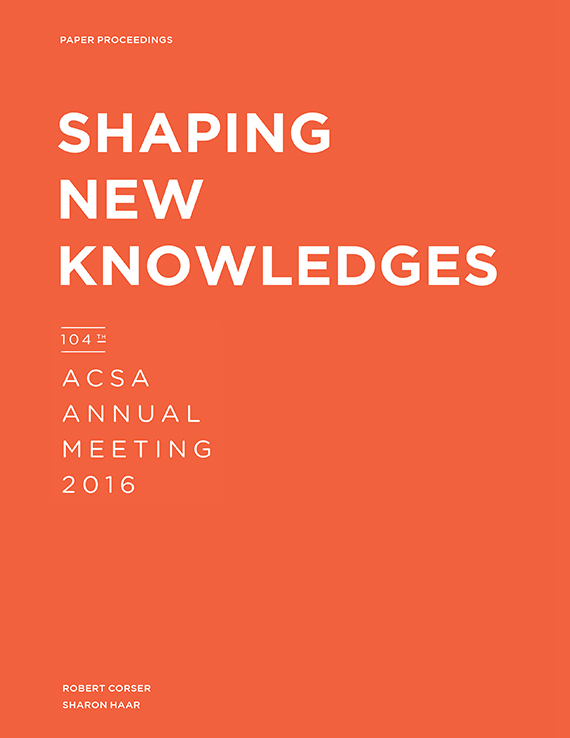Author(s): Keith Evan Green & Yixiao Wang
As familiar to many of us, A Pattern Language is Christopher Alexander’s catalogue of thevisual, spatial and tactile information embedded in architectural systems, and his argumentfor how this information shapes human behavior and, more broadly, the structure of architectureand society. Within this canonical treatise is a less obvious curiosity on which ourpaper and the investigation described here is constructed: Alexander’s concept of “compressing”two or more patterns into a single space. To describe this concept of compressedpatterns, Alexander offers a vision of translating the wide-ranging functions of a typical houseinto the confines of a single, ample room, resulting in a building that, in practical terms,exhibits (in Alexander’s words) an “economy of space” that is potentially “cheaper” to realize.For Alexander, beyond flexibility, compactness, and potential cost savings, a compressedpatternarchitectural work should also be fundamentally “poetic,” offering in its compacted,patterned layers a “denser” meaning to its inhabitants. As Alexander maintained, “thiscompression of patterns illuminates each of the patterns, sheds light on its meaning; andalso illuminates our lives, as we understand a little more about the connections of our innerneeds.”
Volume Editors
Robert Corser & Sharon Haar
ISBN
978-1-944214-03-6

 Study Architecture
Study Architecture  ProPEL
ProPEL 
